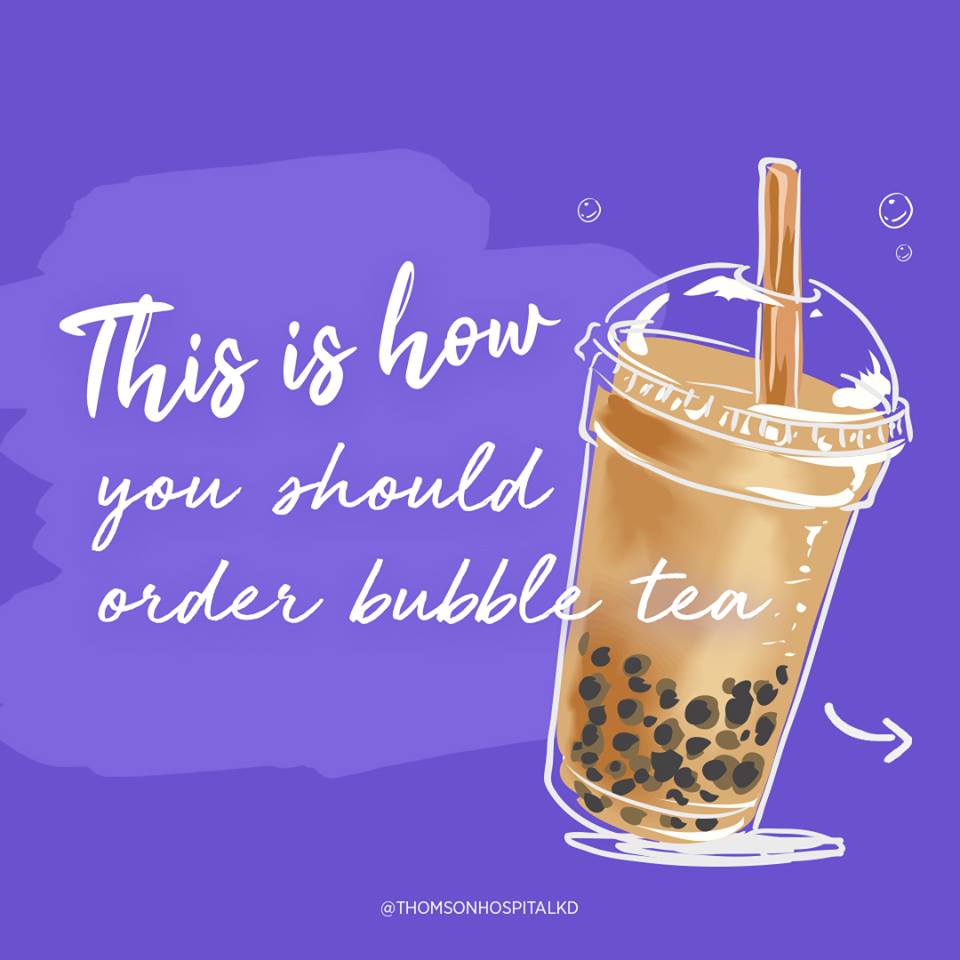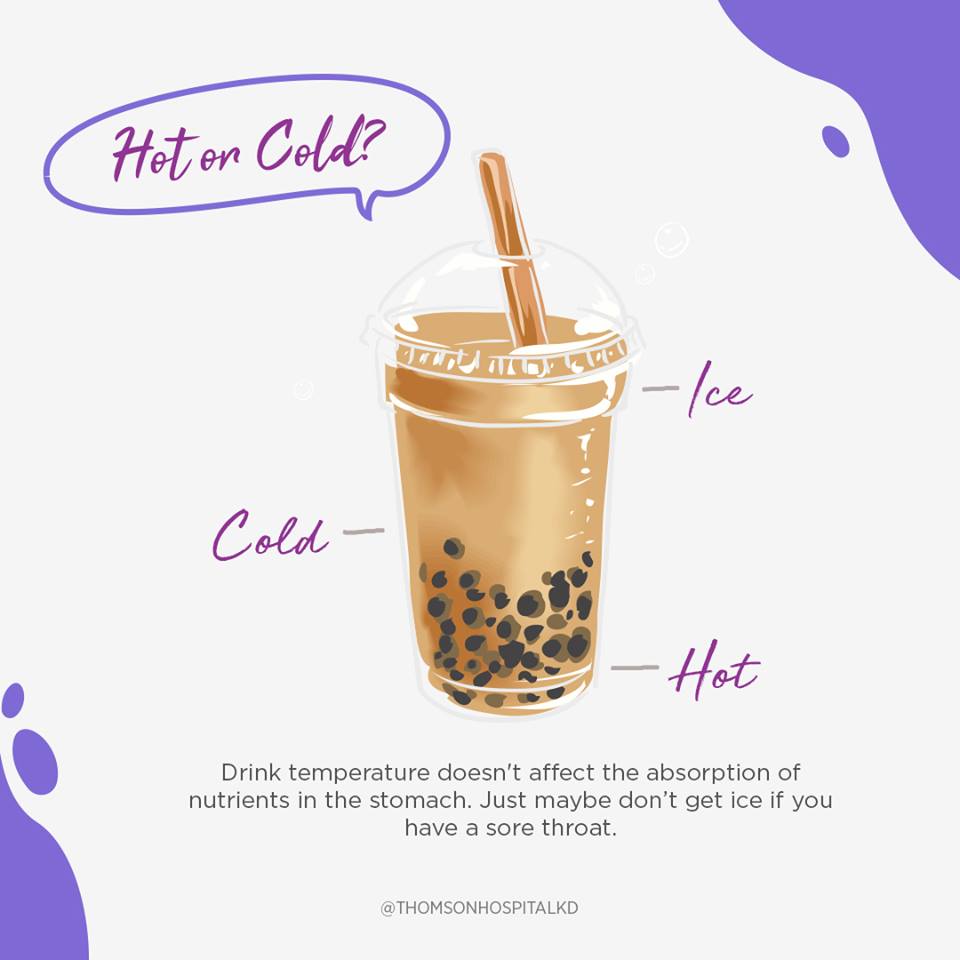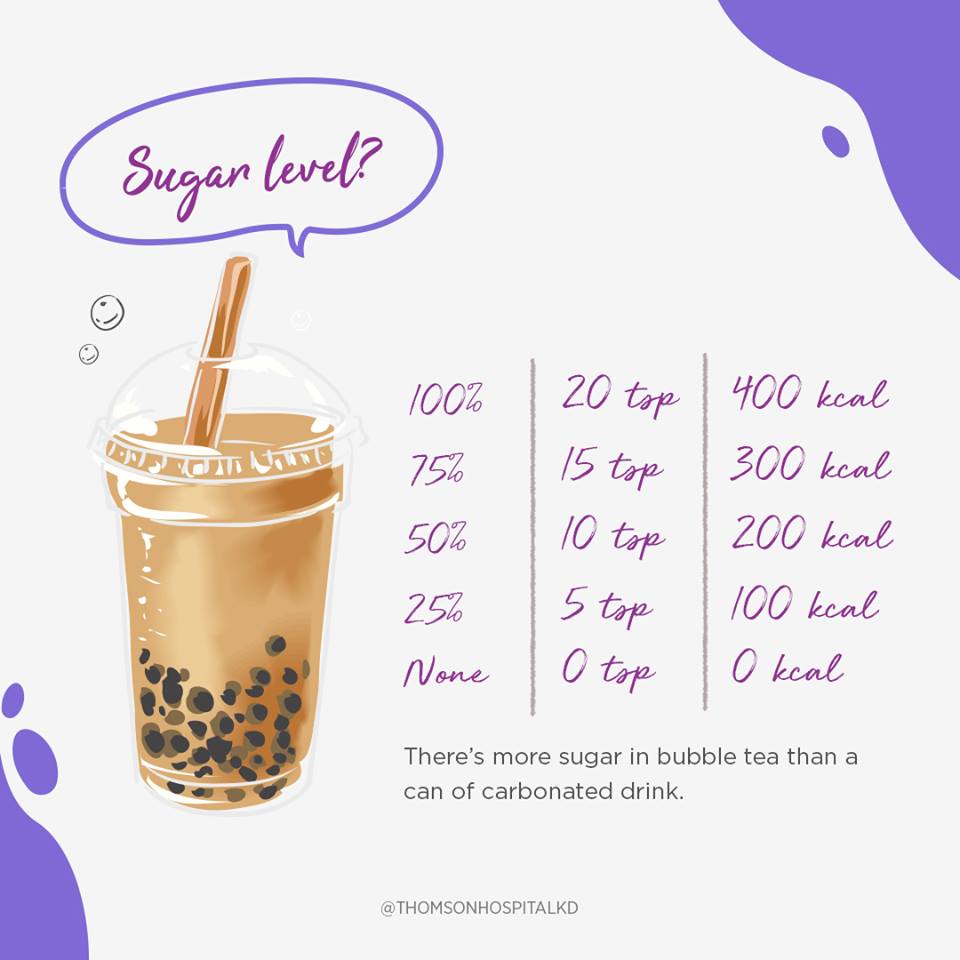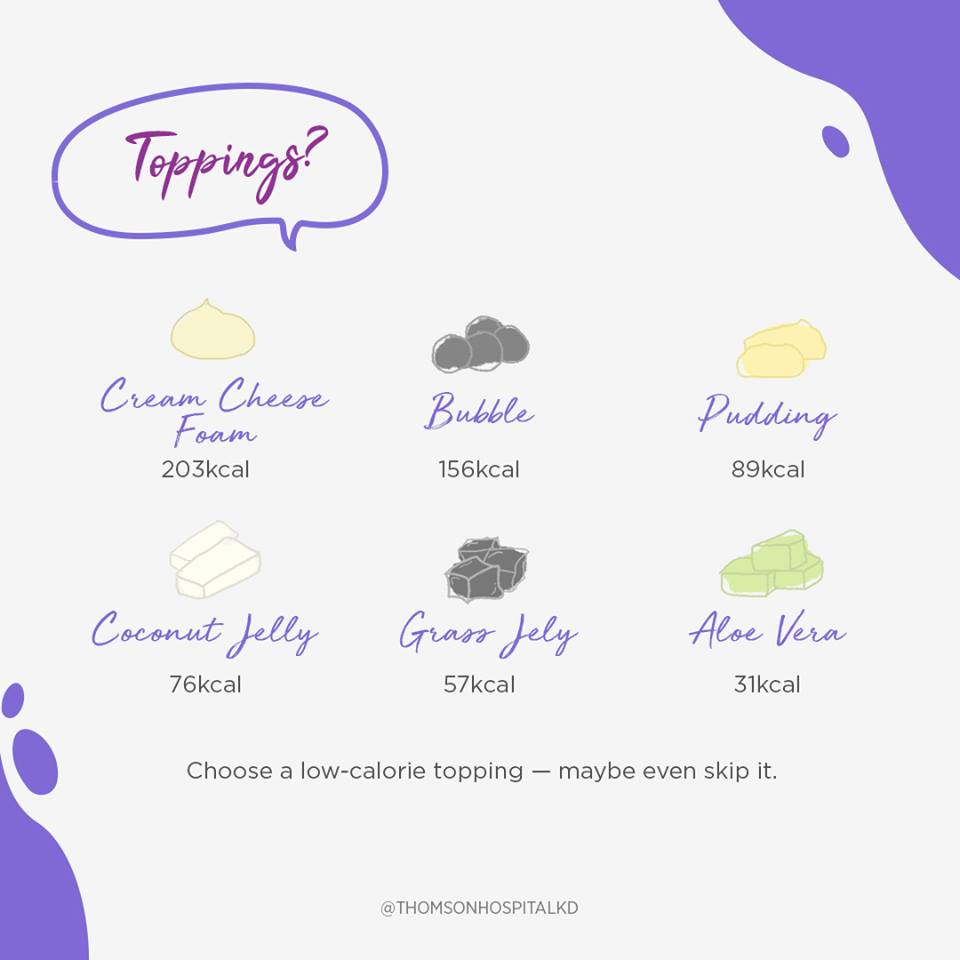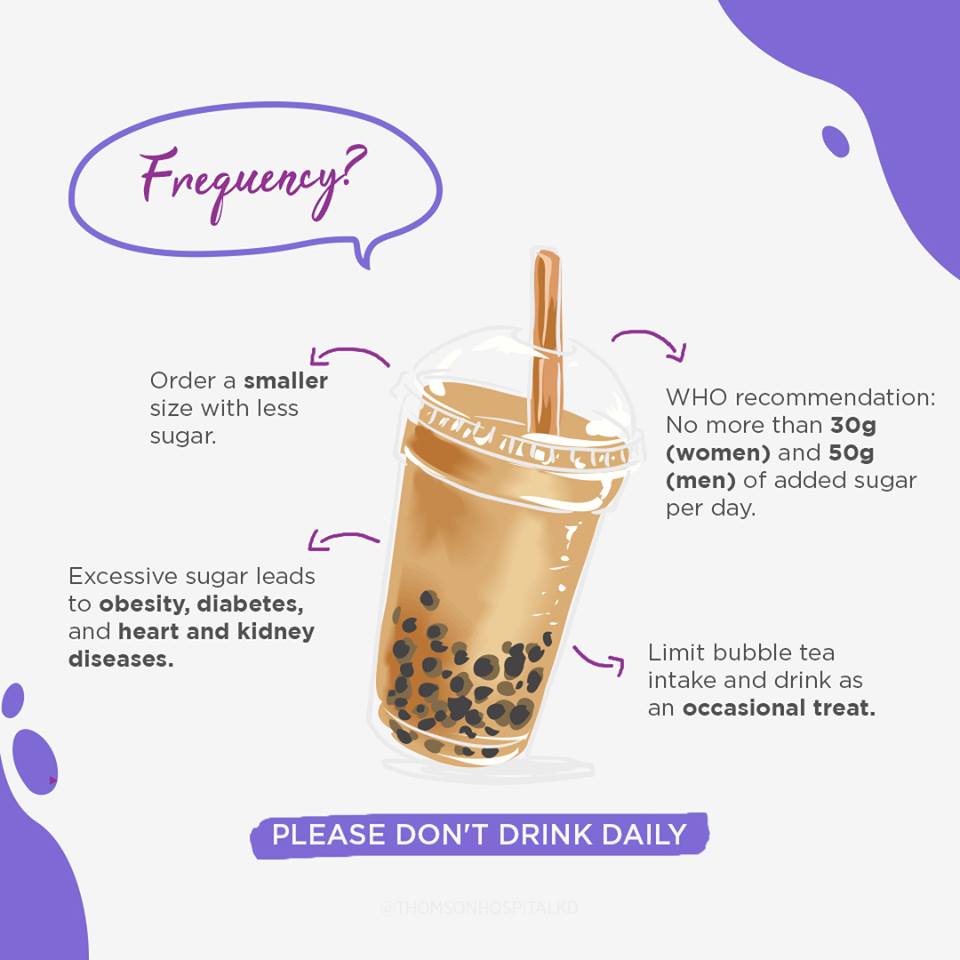PJ Hospital Shares Dietitians' Tips On How You Should Order Bubble Tea
Only drink it as an "occasional treat" and not daily!
The bubble tea craze has seen a lot of criticisms, especially on the dangers of it to one's health.
However, this hospital in Kota Damansara, Selangor is taking a more educational approach to bubble tea consumption.
"We know everyone's going crazy over bubble tea drinks but frequent consumption of this sugary treat can lead to health problems," Thomson Hospital Kota Damansara wrote in the Facebook post.
"However, if you can't resist the temptation and absolutely have to get a drink, let our dietitians guide you through the ideal bubble tea order."
1. Don't take ice if you're having a sore throat
While the temperature of your drink "doesn't affect the absorption of nutrients in the stomach", bubble tea enthusiasts should still avoid ordering an iced version if they're experiencing a sore throat.
2. Ask for as little sugar as possible
The private hospital shared the nutritional information for the different levels of bubble tea:
- 100% or 20 teaspoons = 400kcal
- 75% or 15 teaspoons = 300kcal
- 50% or 10 teaspoons = 200kcal
- 25% or five teaspoons = 100kcal
- None or zero teaspoons = 0kcal
"There's more sugar in bubble tea than a can of carbonated drink," the hospital noted.
3. Ask for fresh milk to be used in your drink
Fresh milk is best for its nutrients, which includes calcium and protein.
While calcium is good for bones, teeth, and prevention of osteoporosis, protein is also good for muscles.
"Non-dairy creamer has much lesser nutrients and may contain trans-fat and high fructose corn syrup," Thomson Hospital explained.
4. Choose low-calorie toppings
Among the six toppings listed by the hospital, aloe vera and grass jelly have the lowest kilocalories, at 31kcal and 57kcal respectively.
Meanwhile, cream cheese foam and pearls are the worst at 203kcal and 156kcal respectively.
Thomson Hospital also advised to skip toppings altogether.
5. Lastly, do not drink bubble tea daily
Citing the World Health Organisation (WHO), women should take no more than 30g of added sugar per day, while the amount is capped at 50g for men.
"Excessive sugar can lead to obesity, diabetes, and heart and kidney diseases," the hospital explained.
Dieticians also advised to order a smaller size with less sugar and limit intake to an "occasional treat".
